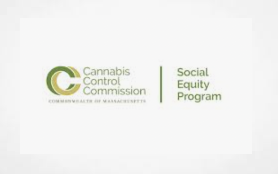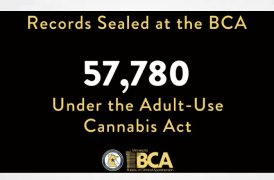Authored by Rebecca Lee Katz |
- SB 51: California appears tired of waiting for Godot, or the passage of the U.S. Secure and Fair Enforcement (SAFE) Banking Act, which would shield banks from federal prosecution as long as the cannabis businesses that they serve are compliant with the state laws where they operate. Accordingly, SB 51 would enable California private banks and credit unions to apply for state charters to explicitly handle cannabis financial transactions. These institutions would be allowed to issue special purpose checks that would be valid for limited uses such as paying fees, taxes, and rent. Regulation of the private banks and credit unions would fall under the purview of the Commissioner of Business Oversight.
“We’ve got all sorts of public safety issues around [cannabis banking],” said California Senate Majority Leader Robert Hertzberg, the Democrat who authored the bill. “We have to come up with a way to make this work. There’s almost over 900 banks’ branches in California that could easily be converted into bank branches to handle cannabis cash.”
The bill has passed the California Senate, and been placed in the suspense file, which is a term for bills that have a particular fiscal impact such that each chamber must evaluate the impact to the State. On August 30, 2019, SB 51 will be heard by the California Assembly Appropriations Committee.
- SB 475: Currently, state-licensed cannabis businesses are barred from offering free samples to wholesale purchasers, who would traditionally sample products before purchasing large orders. SB 475 would let licensed cannabis businesses freely exchange product samples as is common practice in other food, beverage, and alcohol industries. The bill would require that the licensee maintain specific recording documentation and label the product as: “TRADE SAMPLE. NOT FOR RESALE OR DONATION.” The bill imposes other restrictions on the amount of samples provided and prohibits giving them to consumers. SB 475 is currently pending before the California Assembly Appropriations Committee.
- AB 228: Despite the U.S. Food and Drug Administration’s ban on CBD products, the 2018 U.S. Farm Bill legalized hemp, which triggered a rash of hemp-derived CBD products for human consumption and chaos over their legal status. AB 228 legalizes the sale of these goods, which are especially popular with seniors and the health motivated. Significantly, AB 228 would require that these products undergo registration, third party testing, Certificate of Analysis (CoA) labeling, and be sourced from a licensed supply chain.
According to Assemblymember Aguiar-Curry who introduced the bill, “AB 228 is an opportunity to make it easier for citizens to access these non-intoxicating, alternative products.” The bill has passed the Assembly, and on August 12, 2019, the California Senate Appropriations Committee placed the bill in the suspense file. On August 30, 2019, legislators will vote on whether to move the bill to the Senate floor.
- AB 1417: Introduced by Assemblywoman Blanca Rubio, AB 1417 would impose civil penalties on companies that engage in “commercial cannabis activity without a license” of up to three times the amount of the license fee for each violation and allow courts to order the destruction of their product. Additionally, it would target advertising and marketing providers that showcase unlicensed cannabis businesses by enforcing a $2,500-per-day fine for any website that posts ads without a corresponding state license number.
This may be the most divisive of the bills. It is backed by the Los Angeles-based United Cannabis Business Association, a coalition of licensed retailers that opposes online platforms such as Weedmaps for their promotion of unlicensed competitors. The gauntlet now thrown, Weedmaps filed an opposition letter with the legislature, arguing that the bill violates federal law by holding online providers liable, and it improperly carves out liability for corporations such as Yelp and Google while penalizing purely cannabis advertisers. The California Senate Appropriations Committee heard AB 228 on August 12, 2019, and placed it in the suspense file for a vote on August 30, 2019.
- AB 1529: This bill shrinks the size of the universal symbol—a triangle enclosing a cannabis leaf and an exclamation mark, with the abbreviation CA below—required on marijuana vaporizer cartridges from a half-inch by half-inch to a quarter-inch by quarter-inch. While this change could be beneficial to future manufacturers and sellers who will have more label space to work with, it will harm those who have created labels with the larger symbol and will now need to modify those labels. The bill is now awaiting a third Senate reading, which means that it will eventually be voted on.
With so many bills placed in suspense, we are too. We’ll be sure to track their movement on our blog and report back as appropriate.

















